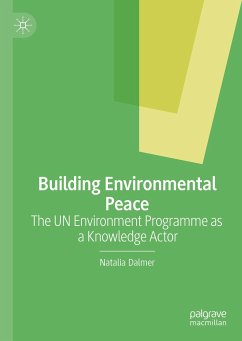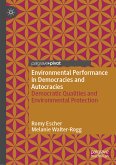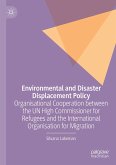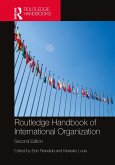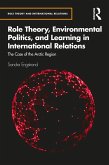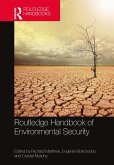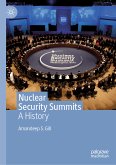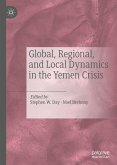- Nanette Archer Svenson, Centro de Investigación Educativa (CIEDU), República de Panamá, USA
"Conceiving of international bureaucracies as actors in their own right and drawing from organizational theory and international relations literature, Dalmer illustrates their role as producers of new knowledge. With a focus on UNEP and the different environments from which the organization has obtained new insights regarding environmental peacebuilding, the book not only makes a timely contribution, but readers interested in international institutions and environmental studies will find it of great value."
- Jutta M. Joachim, Radboud University, Nijmegen, Netherlands
By analyzing the UN Environment Programme's (UNEP's) contribution to peacebuilding, this book aims to show how international bureaucracies develop knowledge and thereby come to matter on the world stage. Portraying UNEP as an open system, it explores how a growing understanding within the Programme of how environmental degradation shapes insecurities and vice versa has motivated its work on peacebuilding. The theoretical part of this book addresses knowledge, open systems, and knowledge creation. It then presents a historical discussion of UNEP's development in an open system context. Finally, it investigates how knowledge emergence on the linkage between the environment, conflicts, and insecurities influenced UNEP's interests and its work on environmental peacebuilding.
Natalia Dalmer is a researcher at the Institute of Political Science at Leibniz University Hannover, Germany. She works on international bureaucracies, knowledge, and environmental politics.
Dieser Download kann aus rechtlichen Gründen nur mit Rechnungsadresse in A, B, BG, CY, CZ, D, DK, EW, E, FIN, F, GR, HR, H, IRL, I, LT, L, LR, M, NL, PL, P, R, S, SLO, SK ausgeliefert werden.
Hinweis: Dieser Artikel kann nur an eine deutsche Lieferadresse ausgeliefert werden.

